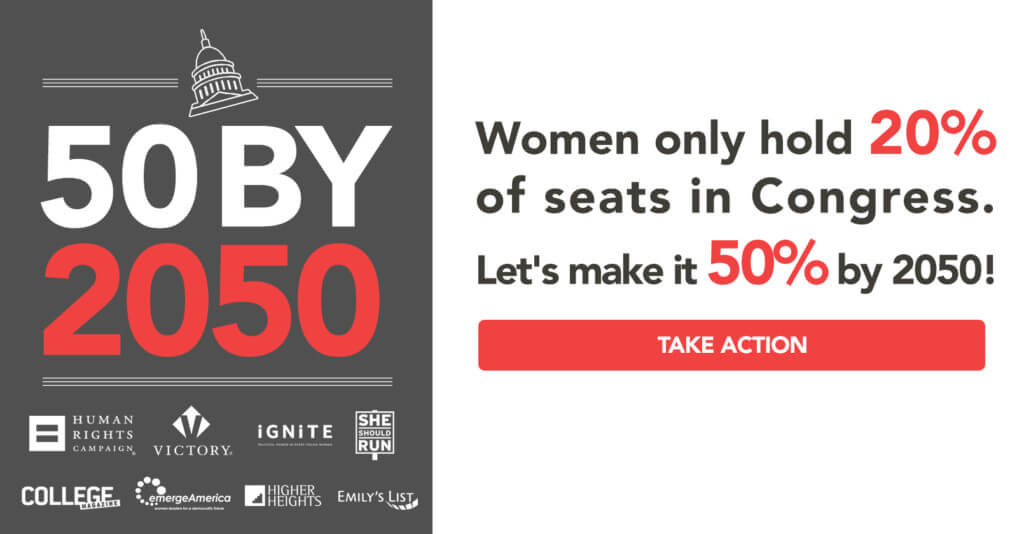Who knows what Congress is? Um…it has a lot of people? Unless you’re a poli-sci major or aspiring to be the next Hillary Clinton, you probably don’t know much. You’re not alone. Fear not—we’ll tell you everything you need to know about Congress…and then some.
What is Congress?
Congress is the legislative branch of the U.S. government. “Congress, made up of elected representatives from every state, is primarily responsible for passing legislation,” said American University junior Will Mascaro. Think Senate and the House of Representatives.
The Senate:
- 2 senators from each state, or 100 total
- Called the upper chamber
- Each senator serves a six-year term
The House of Representatives:
- The reps per states depends on the state’s population (AKA a higher population means more reps)
- 435 total
- They represent part of their state, or their specific district
- Each rep serves a two-year term
- Also called the lower chamber
How Many Members of Congress are There?
Time for some simple math. If the Senate has 100 members and the House of Representatives has 435, that equals a grand total of 535.
What does Congress Do?
Under the powers of the Constitution in Article 1, Section 8…yawn. Who wants to read about a centuries old document? Try this definition: Congress basically makes laws. It also declares war, has the ability to impeach people in the Executive Branch who have gone off the deep end, regulates tax collection, can borrow or coin money, establishes post offices, can raise/support armies, etc.
“At the most basic level, Congress authorizes government agencies to develop and enforce rules that redistribute resources in society and define what is moral and immoral,” said University of Washington Professor John Wilkerson. Alright, but how does that affect you?
Taxes, for one. “For example, Congress creates tax law and authorizes the IRS to implement and enforce that law. Taxes are not simply about raising revenues for the federal government—they also define our responsibilities as citizens. For example, the Affordable Care Act taxes Americans who do not purchase health insurance in order to increase access to affordable health insurance,” said Wilkerson.
Just like when your professor splits your class up into small groups to discuss something, Congress works in groups called committees. You’ll find a committee for just about anything. For instance, there’s the House Budget Committee that has to do with, you guessed it: the federal budget.
Overall, remember that Congress equals lawmaking. “They pass bills to make sure the government is funded, to address major issues like education and health and to respond to crisis that occur around the world. They also work to hold other departments of the government accountable,” said Mascaro.
While you might remember the Affordable Care Act as Obamacare, technically it had to go through first get the approval of Congress. Obama didn’t just wake up and create ACA on a whim. “A bill either starts in the House or the Senate, and if it receives a majority of the votes cast, it is moved to the other chamber. Once it has passed both chambers of Congress, it’s sent to the President, where he can either sign it into [law] or veto it,” said Mascaro. “If the bill is vetoed, Congress can still try to get the bill passed into law, by overriding the presidents veto by earning a super majority of votes in each chamber.”
How Does Congress Affect Change?
One word: laws. Bringing it back to Obamacare, think about how many more people got healthcare thanks to it. That’s change right there. What about Title IX, AKA no discrimination based on your gender? You can’t deny that changed things big time.
“The laws they pass can impact all of us, and they can use their national platform to bring light and attention to important issues,” said Mascaro. “Just last year, for example, Congress passed a bill to address mental health and fund programs aimed at assisting Americans struggling with mental illness.”
That starts with you. Bills don’t just pop into representatives’ heads the same way you randomly have the bright idea to grab Starbucks after class. Instead, there’s something called lobbying, or people who influence Congress. “Congress has an enormous amount of power and huge influence; all the more reason for young people like us to turn out to vote and make sure our voice is heard,” said Mascaro.
That’s where voicing your opinion comes into play. “In a perfect world, because each state is represented through their congressman, college students, or any constituent for that matter, can have their voice be heard regarding any issue or concern they have,” said American University senior Morgan Crabtree.
In other words? Get out there and do your part. “This is incredibly important to know because I feel like many students feel like their voice can only be heard when voting for their president, which forced many people to associate themselves with a certain party when that candidate may not even represent them properly,” said Crabtree. “It gives local communities another resource or avenue to push the government to address real concerns.”
What Does it Take to Become a Congressperson?
The Senate
- Be at least 30 years old
- Be a citizen for at least 9 years
- Live in the state you want to represent
The House of Representatives
- Be at least 25 years old
- Be a citizen for at least 7 years
- Live in the state and district you want to represent
Beyond those simple qualifications, keep in mind that most congresspeople hold at least a bachelor’s degree in political science, business or something related. Many even started out at lawyers—that’s not a requirement, but that background would probably come in useful.
Politics is not easy, so prepare yourself for the long haul. Experience will help you decided if you really want to commit to this, too. If you’re serious, gain leadership experience (such as running for student body president or working in local politics), intern at a government official’s office or volunteer. Get your name out there, pick your political party if you don’t currently identify with one, network and show that you care.
Once you’ve decided you want to run, you’ll need the nomination of your state’s political party. You can also opt to register as an independent or write-in candidate. Depending on your state, you might need to pay a fee or collect signatures to petition to have your name on the ballot.
After that…well, we’ve all binge-watched Scandal, seen the elections on TV or driven by the road signs bearing various candidates’ names. That’s when you fundraise, network and sell yourself like the boss you are.




















